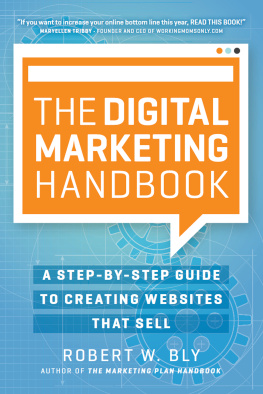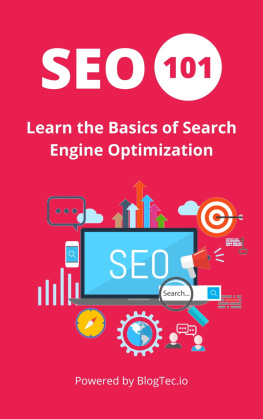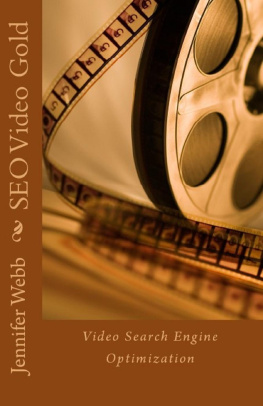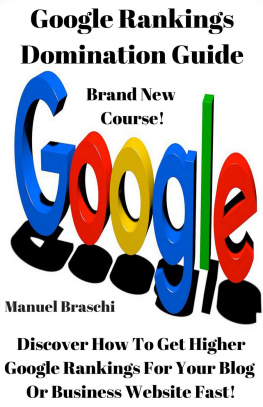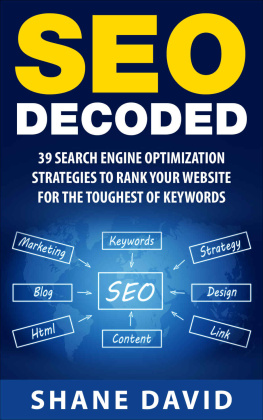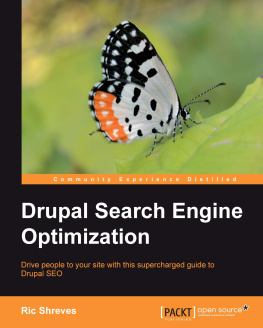Introduction
Why Learn SEO?
Search Engine Optimization, or SEO, is a set of best practices for getting a website or page ranked as highly as possible in one of the top search engines. SEOs (people who do search engine optimization) like to refer to "search engines" in the generic sense to be democratic, but in reality, Google is the search engine that is targeted most often. If a web page is ranked as the top result in Google, a similar ranking will very likely follow in Yahoo and Bing. Throughout this book, we'll use "Google" and "search engine(s)" synonymously, since Google's indexing algorithm sets the agenda for all other general purpose search engines.
 |
Yahoo doesnt have a search engine of its own. It began as a directory, where "search" results came from sites hand-picked by Yahoos own staff. Yahoo now uses Bings search technology behind the scenes. Between the Bing website and Yahoo, Bing-powered search is 26.1% of the US search market, while Google is 65.6%. |
SEO is a constantly moving target. Many tips and concepts that worked famously two or three years ago have either diminished in effectiveness, or are even counterproductive to implement at this point. Unfortunately, no one in the SEO world has the last word on what works and what doesn't with 100% authority. The reason is simple: search engines use proprietary algorithms (computational rules and procedures) for deciding which pages command higher rankings in search results. If everyone knew how Google's algorithm worked, everyone would game the system. All we can do from the outside is draw of years from experience, looking at different properties of high ranking websites and trying to find commonalities.
One of the most consistent features of pages on the first page of Google is a relatively large number of inbound links. Suppose you wrote the world's greatest blog post on container gardening. Theoretically, outstanding content gets circulated more than average or mediocre content. So, when other home and garden sites address the topic of container gardening, they might reference your article in the form of a link, and your post could wind up with thousands of links pointing to it. When you look up "iPhone" in Google, the top result is almost always Apple, since the vast majority of iPhone-related content has links to Apple's website.
Some webmasters and Internet marketers take the reductionist view that links are the only factor that really matters in SEO. On the opposite extreme, some blogging gurus insist that all that matters is writing good content, implying that Google's search results are a meritocracy. Both arguments have serious flaws which will be addressed throughout the book.
The Benefits of SEO
Search engine optimization isn't the only way to increase a website's traffic and income, but it's arguably the most important. This goes against the grain of popular sites that put social media on a pedestal, insisting that bloggers and marketers should focus their attention primarily on Facebook, Twitter and Google+ for driving pageviews. For many websites, social media is indeed necessary, but not sufficient. Search traffic has its own unique advantages.
Search traffic is, relatively speaking, sustainable traffic. A #1 result in Google, maintained over time, will deliver consistent traffic to a site day in and day out. If the term "container gardening" gets around 300 searches a day in Google, the #1 result will be clicked on about 40% of the time, meaning that your top ranked post on container gardening would receive about 120 visits today, 120 visits tomorrow, and so on. Search rankings aren't staticthey can be overtaken by new pages that gain authoritybut they require far less maintenance to maintain their positions that social media updates.
 |
An analysis of traffic distribution based on a leaked AOL study found that the #1 result gets 42.1% of the clicks in all of Googles search results. The click distribution for results #2 through #9 on page one: 11.9%, 8.5%, 6.1%, 4.9%, 4.1%, 3.1%, 3.0%, 2.9%, and 3.0%. So the #1 result gets 3.5 times more traffic than the #2 result. |
Search Traffic vs. Social Traffic
Sustaining social traffic from networks like Facebook and Twitter requires constantly updating those accounts with new content. Stop tweeting, and you stop getting traffic from your followers on Twitter. Social networks have to be maintained more aggressively than search engine results to sustain user visits. Unlike a search result, updates on social networks provide almost no residual traffic. Every new tweet is pushed further down the timeline by a newer tweet until it fades into history. A good search ranking, on the other hand, maintains its place for as long as it's perceived to be a quality result in the eyes of Google.
Blogging has the same problem as social media. Bloggers are sometimes referred to as "pageview slaves" due to their need to blog regularly to maintain their traffic. Any sharp decline in posting (taking a day off from a blog that averages four posts a day, for instance) often engenders a sharp decline in traffic. To increase their pageviews, many bloggers feel obliged to increase their posting frequency at the risk of burning themselves out; or worsethey're compelled to write "linkbait" topics that succeed at attracting short-term traffic at the risk of lowering long-term credibility.
If you're trying to make money online, social traffic is notorious for providing poor conversion rates (see the sidebar below). Social bookmarking platforms like Digg and StumbleUpon bring in plenty of readers, but few buyers. Social sites are used primarily for recreation. When readers click on a "fishing rods" link in a blog post that's on Digg, it's usually because their curiosity has been piqued. This is fundamentally different from users who type 'fishing rods' into a search enginethese are people who probably want to actually buy fishing rods. So a visitor on your site that comes from a search engine is generally more likely to convert to a sale than a visitor from a social bookmark or status update.
 |
Conversion rate refers to the percentage of viewers who respond to a specific call to action on a page relative to the number of times the page is viewed. Actions can range from entering an email address to clicking on a "Buy Now" button, depending on the conversion goal. If "Buy Now" button clicks are the conversion goal, then three clicks between 100 visitors would mean a 3% conversion rate. |
Search Traffic vs. PPC Traffic
Another competing form of traffic is "pay per click," or PPC traffic. Ads in the Google Search Network appear above and to the right of the regular "organic" Google search results, and can therefore be thought of as "instant" SEO: you buy search terms and show up immediately on the first page of Google without having to build inbound links or spend time editing your pages for keyword relevancy. For years, the Google AdWords program has been the go-to PPC network for advertisers, though Facebook has a strong PPC program of its own.
 |
In addition to the Search Network, where ads appear on search pages, ads can also be purchased for the |


